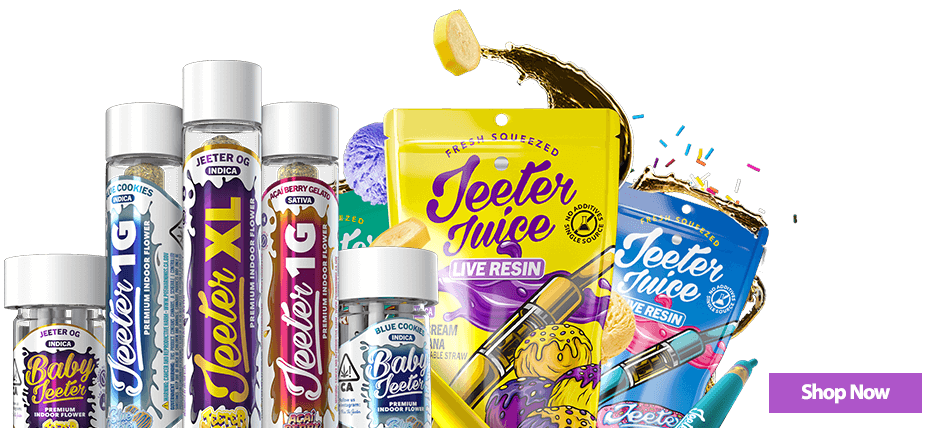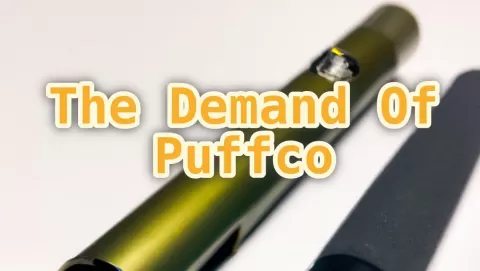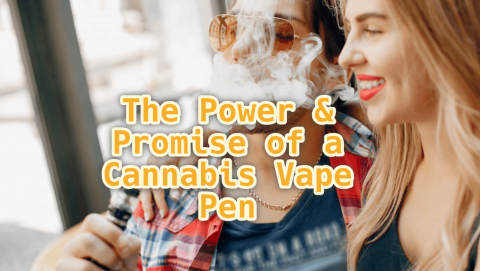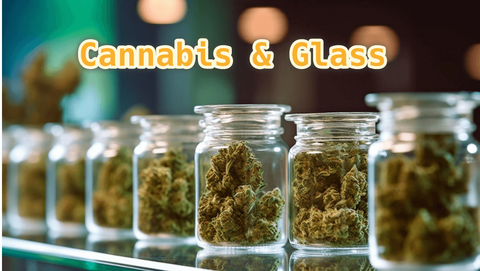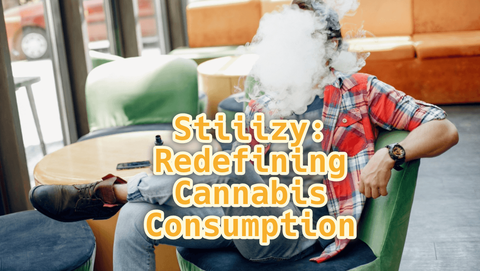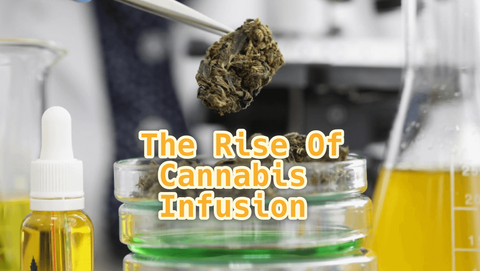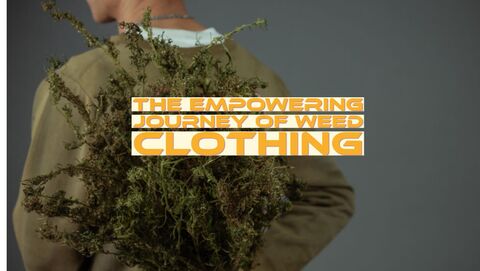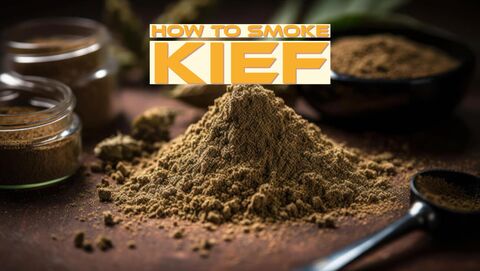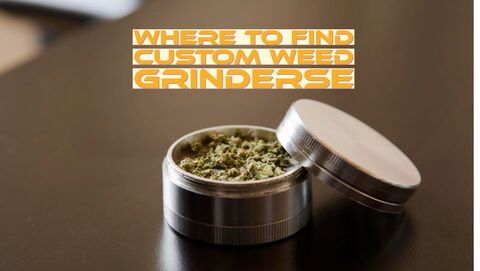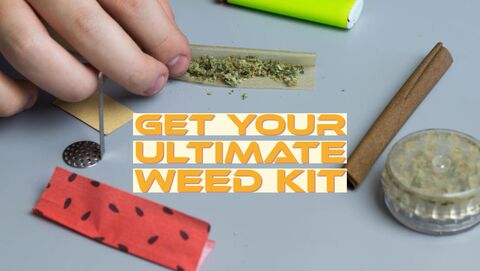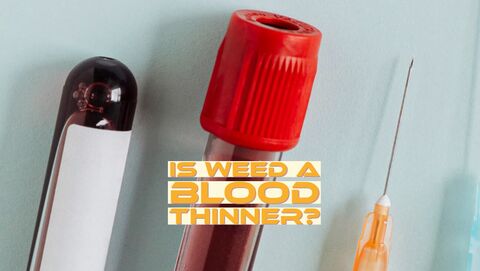Latest Blog Posts
Top rated
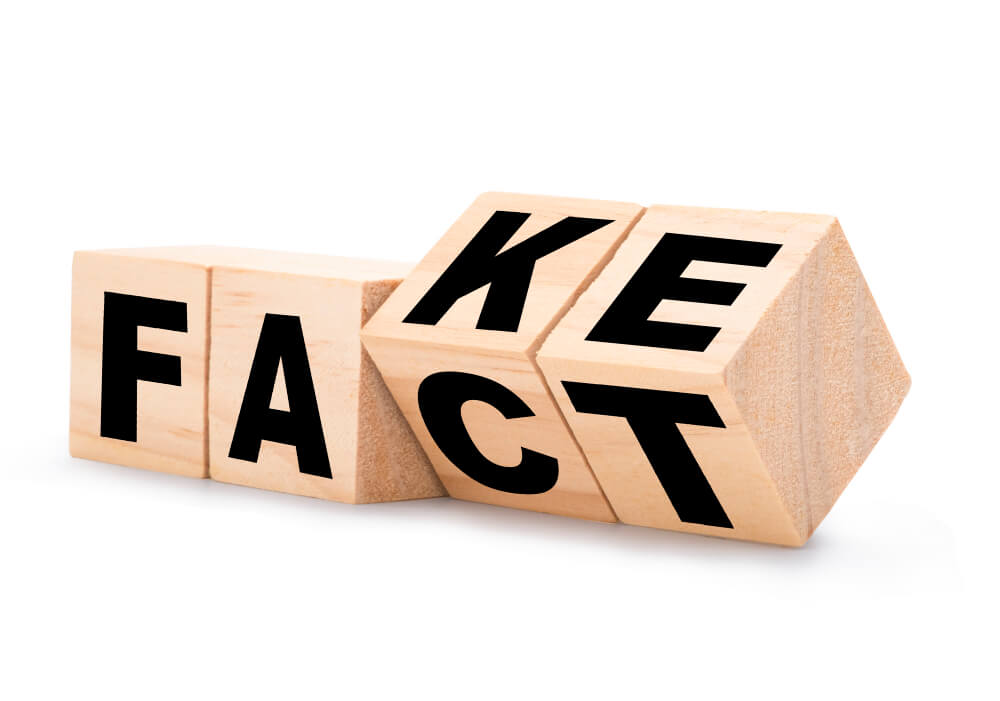
Counterfeit Cannabis Hazards
When a company puts black-market weed in the packaging of established brands, it creates problems. This is immoral and unethical since the company has no right to infringe upon the proprietary intellectual property of another's creation. Some counterfeit weeds on the market are harmful to our health if consumed at high doses.
Counterfeit Cannabis Problem
There are many counterfeit weeds in the market, primarily by taking the packaging of established brands and putting black-market weed inside the packaging. Not only does this cause irreparable harm to brands and customers since this weed is unregulated and may contain harmful chemicals.
The situation is even more complicated. Listening to daily marketing messages won’t be enough to counter the adverse effects of counterfeit products on health. People should find out what is being sold in the market by contacting suppliers directly through local law enforcement agencies (LEAs).
After that, get medical records from the doctors to prove its adverse effect on health that clearly state that their patients experienced some adverse effects due to using black-market weed for a long period. Moreover, convincing medical evidence is required to show how much time each patient has used a counterfeit product and which symptoms they experienced after using it for a long time.
Suppose someone has taken a significant risk and decided to try black-market weed after consuming other types of drugs or alcohols because they claimed that it gave you some quick relief or relief from pain or discomfort. That’s fine if it works well when used correctly; however, if it doesn’t work as expected, there are chances of sickness with a blood infection or an allergic reaction due to taking abnormal amounts of marijuana.
That’s why it would be wise not just for consumers who want better quality weed but also for law enforcement agencies who wish for safe products to protect public health at all costs.
Types of Counterfeit Weed
The cannabis market is large and has been growing since early 2014. It is no secret that the black market for cannabis is the most lucrative of all markets in the world. Black market weed has been a well-known source of revenue for years, but this does not have to be the case. It is detrimental to health.
The true purpose of legal marijuana is to stop people from using excessive amounts of illegal drugs like cocaine and heroin. These substances are harmful, and contribute to long-term unemployment and crime rates among users.
Most cannabis plants contain cannabinoids such as THC (tetrahydrocannabinol), CBD (cannabidiol), CBN (cannabonanine), and CBG (cannabigerol). THC is the primary psychoactive component in marijuana. It acts as an inhibitor of the nervous system, which leads to hallucinations, paranoia, anxiety, and other adverse effects on mood and mental health.
CBD is another important cannabinoid that helps with pain relief, anti-anxiety, and anti-prolapse effects, while CBG helps with memory recall and coordination issues. The plant contains dozens of cannabinoids, which cause various positive effects on mood, cognition, sleep patterns, and other cognitive functions.
The real danger with black-market weed isn’t that it can cause problems for consumers but that it can cause problems for law enforcement by altering reality through hallucinations or paranoia while producing long-term damage to their health. For example, suppose a tired person smokes black market weed at night. He might be more likely to overestimate his abilities as a driver or think he has a car in trouble, but in reality, there are no issues with his vehicle or any other problem.
Perception of life is also altered by being high on marijuana, often leading to social behavior such as misbehaving at work. Being high on marijuana makes employees overreact even if they don’t have any workable issues. Primarily, this happens because, as opposed to regulated weed that undergoes a significant amount of testing, there are no such testing mechanisms on counterfeit weed, and any chemicals may potentially be included in the batch.
Another common occurrence where counterfeit weed can be found is in packaging that looks authentic but isn’t really what it claims because it doesn’t contain entire varieties within its packaging as the original pot does. After all, there are many different varieties available depending on what types of plants are grown for each strain.
What to Do If Someone Finds Counterfeit Weed
The term ‘black market’ describes the unregulated and illegal drug trade, including cannabis. The black market is a problem for all consumers as it provides a means for those who do not legally have access to the drug. If someone finds strange packaging on bud or hemlock, don’t be afraid to get suspicious.
In the U.S., black market sales of cannabis are estimated to be worth more than $6 billion. That is an estimated $420 million from a single state alone. In addition, black-market sales of cannabis in Canada are pegged at approximately $3 billion annually — almost double the annual sales reported by organized crime groups operating in Canada.
The United States has seen its share of issues related to black-market weed, mainly because of legal restrictions on medical marijuana cultivation and distribution. But even with a legal limit on cultivation and distribution, there are still illegal operators profiting off the black market.
This can be especially problematic for marijuana concentrates such as hash oil (the substance that makes hash brownies and other products), extracted from leaves and stems that have been dried into a solid form by heating over high heat for long periods.
Hash oil can contain dangerous chemicals (like hydrocarbons) but also straight THC (the psychoactive compound found in marijuana) and CBD (a compound found in hemp). Other compounds in hash oil like terpenes, flavonoids, and chlorophyll can impart their properties to the final product when added during extraction. This can lead some users to think they have ingested cannabis-infused food or drink when they haven’t eaten anything — just sticky resin with nothing else added.
Tips for all cannabis containing concentrates:
- Don’t keep them ready for consumption or sharing
- Use these concentrates strictly as directed by a doctor or registered health care professional
- Do not consume concentrated cannabis unless advised by a health care professional
- Avoid inhaling concentrated cannabis-infused substances
- Keep concentrated cannabis away from children and pets
- Store it safely
Why do Customers Purchase Counterfeit Weed?
There is a lot of counterfeit weed around, hurting the economy. Counterfeit weed is nothing more than marijuana that has been purchased from a black-market dealer. Counterfeit weed has become such a problem that the government is cracking down on them.
The U.S. Drug Enforcement Administration (DEA) has released a list of prohibited and illegal drugs to possess, buy and sell in the United States under federal law; however, some of these drugs have been manufactured by black-market drug companies that have remained legal under state laws.
Counterfeit weed could be one of those products; however, it can also be produced by legal producers who have engaged in an illicit activity for years now and remain legal under state law.
The government has also begun to take action against individual dealers who sell counterfeit cannabis.
There are two ways to solve this problem:
- Focus on stopping the black-market dealers from selling illicit products by enforcing laws about what types of drugs and where they can be sold
- Focus on getting people to stop buying from those dealers, instead buy from local farmers who have legal licenses to grow cannabis legally
How to Protect People from Counterfeit Weed
Unfortunately, many legal weed users have been affected by counterfeit weed. This is a common problem for those with the good fortune owning a legal plant. Counterfeit cannabis is not a new phenomenon in the weed industry. It has been around for quite some time. However, since marijuana is an illegal substance on the federal level, underground organizations were not hesitant to create counterfeit products.
Various government agencies began taking action against counterfeiters and made it mandatory to be prosecuted. Many online stores have taken steps to root out counterfeiters and their products via their websites and local newspapers that report on these offenses.
Several steps need to be taken to protect from counterfeit weed:
• Check the label carefully before buying any cannabis product – some brands may put fake THC levels on their packaging anyway, so there is nothing to do about that. Some brands put THC levels on the packaging while others only put “not tested” on there – so make sure to read the label correctly before buying any cannabis. In addition, please note that some brands will also say “no THC content” or “not tested” on their labels too; so even if your product says “no THC content” or “not tested” on it, do not assume this means it is not adulterated with any other chemicals (such as mold)
• Check package carefully for signs of tampering – look at what parts of the packaging are cut out or removed altogether (e.g., cutting out the front window) or have packaging tampered with another way (e.g., holes drilled into it); ensure there are no holes drilled into its plastic manufacturing base. Check that its plastic manufacturing base is intact; check if its inner packaging has been damaged – if they were destroyed while being stored in transit (which may be pretty standard), then try unpacking it before using it and see if anything got broken during shipment. Try to open its cover when packing it in the original box. Open its lid to use it without pressing down firmly enough with fingers, etc.
• Avoid buying weed from other unregulated companies – some established brands may not want to use their good name with fake cannabis because they know they won't get much return from doing so either
How to Stop Counterfeit Weed
Counterfeit weed is a growing problem in the cannabis industry, and it is something that can make money. The problem is not only the fact that the product probably contains THC (the substance that makes feel high) but also that it may contain other chemicals, including dangerous ones like arsenic, lead, or CBC (carbon monoxide). If someone doesn’t know enough about cannabis to decide whether a product is legit, then buying it could be a bad idea.
There are several ways to spot counterfeit weed from legit:
• If there is no brand name on the packet, it is probably fake
• The packaging may say "Marijuana," "Hydroponic," or "Mulch."
• The packaging may say THC content on CBD on both sides of a sheet of paper
• Labelling for ingredients such as "CBD" and "THC" in different formats: osmosis / osmolality / osmo-ratio/ mass / weight
The Impact of Black-Market Cannabis
The cannabis plant (the one that produces THC) contains large amounts of terpenes, which are naturally occurring compounds responsible for different plants' aromas. Terpenes have similar chemistry to cannabinoids and have a significant effect on the psychoactive properties of cannabis.
Terpenes are vital because they are responsible for 95% of the impact when people smoke hemp-based products. The grossest example of counterfeit weed is probably the ubiquitous “dabs.” These are made from high-potency cannabis resin and are generally used as an inhaler.
They contain extremely high levels of THC but also high levels of other cannabinoids and terpenes (which may or may not be present in larger quantities). They act as a carrier for many different ingredients, including CBD, and sometimes even as an effective painkiller by blocking specific pain receptors in the body (cannabinoids do this too).
CBD is another chemical found in abundance in cannabis plants like hemp-derived products. It has analgesic, anti-inflammatory, and neuroprotective properties, so it is often used as an anti-anxiety medication (cannabinoids do this too).
The problem with counterfeit weed is that it isn’t regulated at all. Many companies who manufacture their bud slap a logo on it with no care taken to make sure the THC level isn’t extremely high. The risk here is obvious: if people inhale something containing 10mg/ml THC, they will quickly get high. That will make them feel fabulous at first, but then their body will start producing more and more THC over time — and eventually, they may not feel so great.
The best way to guard against counterfeit weed is to buy from trusted sources. If one company sells its product directly through distributors or wholesalers, there is no reason not to trust them — legally! Another option would be buying from reputable licensed dispensaries — though it might require some extra work getting them opened up in a specific area due to zoning issues or safety concerns (and possibly legal ones).
The Bottom Line
Black market weed is unregulated. There are plenty of opportunities for it to be used to harm customers and brands alike. This is why the black-market weed has become the most dangerous kind of weed, with many people suffering from adverse side effects and others even dying due to its use in the long run.
It may not have any legitimate medicinal use yet. Still, its alleged medical services have been heavily promoted by many ignorant individuals who do not know what they are talking about or are just trying to make quick money.
The effects that black market weed has on health can be anything from addiction to death. Therefore, for a safe and legal way of getting high, people should avoid this product that cannot benefit its users.
Disclaimer: This material is for informational purposes only and should not be relied on for legal, medical, financial, or any other form of professional advice.

